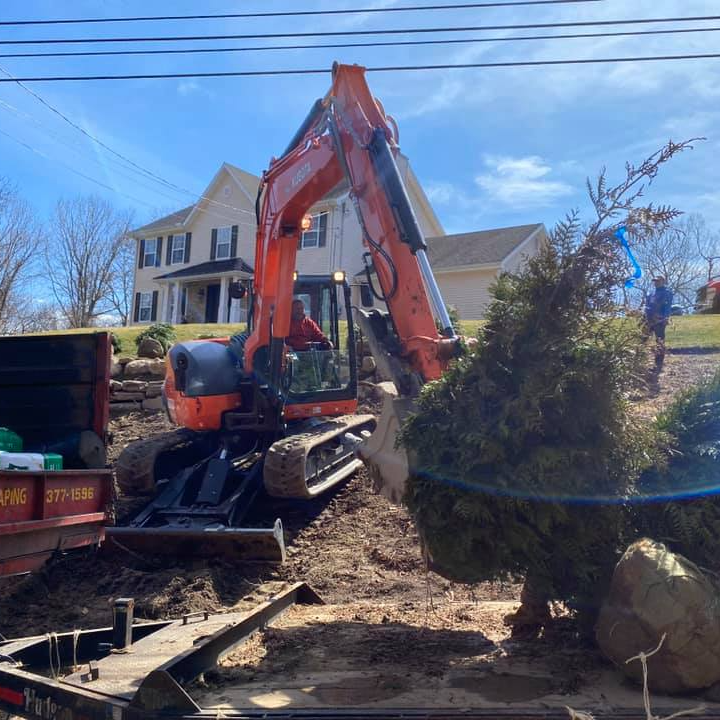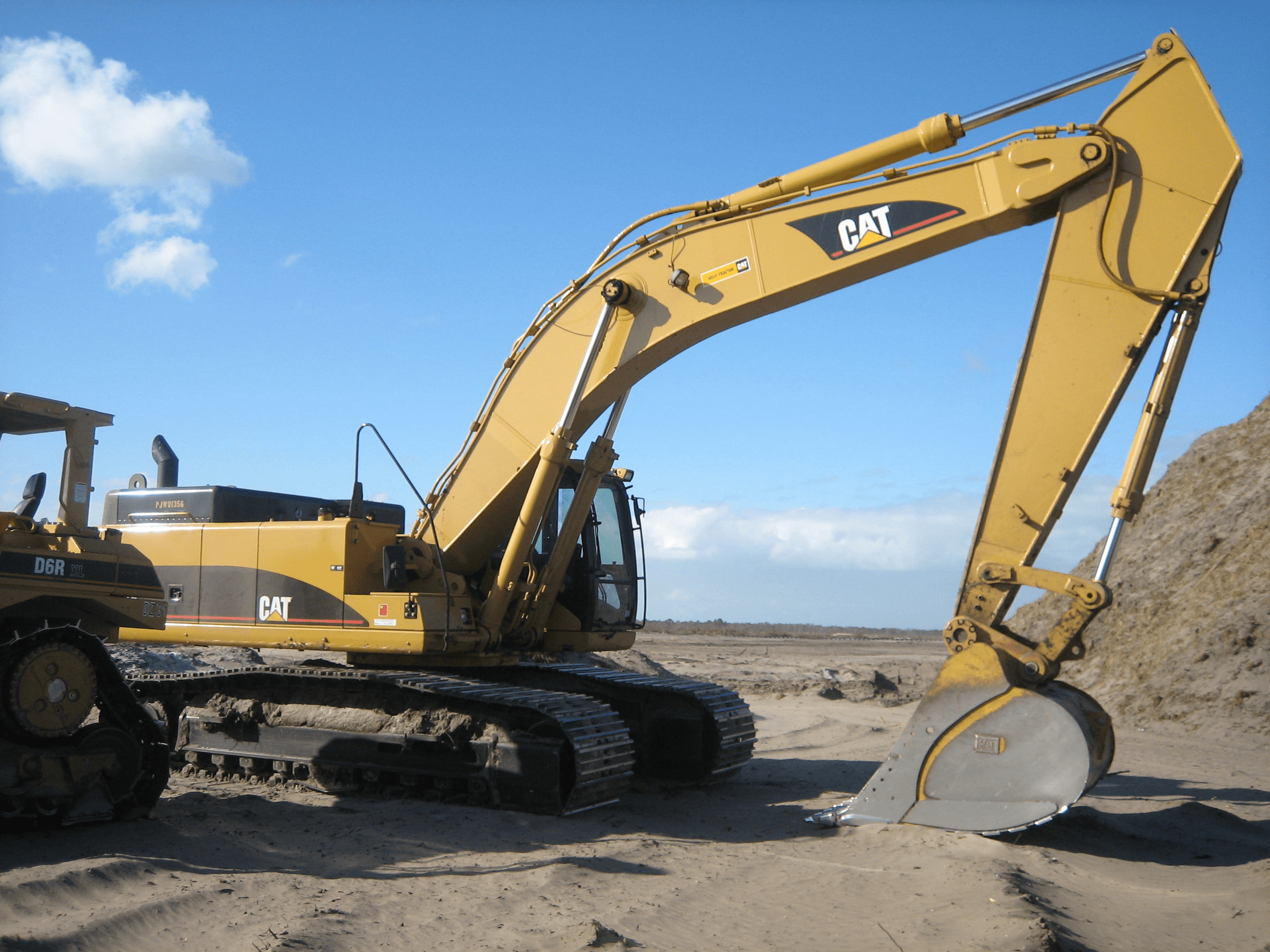Economical Lancaster Excavation - High Quality Excavation at Competitive Costs
Economical Lancaster Excavation - High Quality Excavation at Competitive Costs
Blog Article
Comprehensive Excavation Methods: Understanding the Basics for Success
The careful planning, precise execution, and careful interest to detail needed in excavation jobs demand a thorough strategy that incorporates different essential facets. The true proficiency exists not simply in recognizing these fundamentals but in perfectly integrating them to browse the intricacies of excavation projects with skill.
Comprehending Excavation Job Planning

The initial phase of any type of excavation job is the preparation stage, where crucial decisions are made that can significantly influence the outcome of the project. Comprehending the job timeline, extent, and spending plan constraints is critical for developing a detailed excavation strategy that makes sure the task's success.
One secret element of excavation job planning is the advancement of an in-depth timeline that describes the sequence of deadlines, landmarks, and activities. This timeline acts as a roadmap for the project team, enabling them to track progression and make necessary adjustments to make sure the task remains on schedule. In addition, a well-defined budget that makes up all expenses, consisting of devices service, labor expenses, and products, is crucial for staying clear of expense overruns and delays. By very carefully considering all these aspects during the drawing board, excavation tasks can be implemented effectively and effectively, leading to successful results.
Soil Analysis and Site Assessment
Carrying out complete soil evaluation and website examination is an important step in the preparation phase of any excavation project. Soil analysis involves identifying the make-up, structure, and properties of the dirt at the excavation website. This information is critical for comprehending the dirt's bearing capability, wetness web content, and capacity for erosion, which are essential consider figuring out the excavation approaches and tools needed for the job.
Website evaluation surpasses soil analysis and incorporates a wider assessment of the overall website problems. This assessment includes recognizing any potential risks, such as below ground utilities, ecological concerns, or unsteady terrain, that could impact the excavation process. By thoroughly evaluating the site, project supervisors can create effective excavation approaches that focus on safety, effectiveness, and environmental security.
Utilizing sophisticated modern technologies like ground-penetrating radar, dirt tasting, and drone surveys can enhance the accuracy and performance of dirt evaluation and site assessment. Investing time and sources in these preliminary actions can inevitably conserve time and protect against costly hold-ups or difficulties throughout the excavation procedure.
Devices Choice and Application
Reliable excavation projects count greatly on strategic tools choice and usage to make certain ideal efficiency and performance. Selecting the ideal equipment for the work is essential in making the most of effectiveness and reducing downtime. Factors such as the kind of soil, depth of excavation, and task extent play a substantial duty in determining one of the most suitable equipment for the job at hand.

In enhancement to picking the ideal equipment, proper utilization is key to task success. Operators must be trained to handle the equipment safely and efficiently - dump truck companies in ohio. Regular upkeep checks and prompt fixings aid protect against failures and make certain regular efficiency throughout the check my source task
Precaution and Rules Compliance
In the realm of excavation projects, focusing on safety procedures and compliance with guidelines is extremely important to guaranteeing a legitimately sound and protected functional atmosphere. Safety measures include a series of techniques, consisting of performing comprehensive website analyses, implementing correct signs and obstacles, and offering adequate safety and security training for all workers associated with the excavation procedure. Adherence to policies, such as OSHA needs in the USA, guarantees that the excavation task satisfies the necessary criteria to safeguard employees, bystanders, and the surrounding setting.

Tracking Progress and Adjusting Techniques
Just how can forecast supervisors successfully track the innovation of excavation tasks and adapt their strategies accordingly to optimize outcomes? Surveillance progress is necessary for making certain that excavation tasks stay on track and satisfy target dates. Task managers can make use of numerous devices and methods to track progression, such as everyday report card, routine website inspections, and progressed tracking technologies like drones and general practitioners tracking systems. By continually monitoring the project's advancement, managers can recognize any potential hold-ups or concerns at an early stage and take proactive actions to address them.

Final Thought
In final thought, grasping the basics of thorough excavation methods is essential for the success of any type of task. By understanding project planning, analyzing soil and website conditions, choosing suitable devices, adhering to safety policies, and keeping an eye on progress, job supervisors can guarantee a efficient and smooth excavation process. Carrying out these methods will certainly cause effective results and decrease prospective threats or setbacks throughout the excavation project.
The first stage of any kind of excavation project is the planning phase, where critical choices are made that can significantly impact the result of the task. Understanding the project extent, timeline, and budget plan restrictions is critical for creating an extensive excavation strategy that makes certain the job's success.
Exactly how can predict managers effectively track the development of excavation tasks and adjust their approaches appropriately to optimize outcomes? By carefully keeping track of progress and being ready to adapt techniques, task supervisors can boost the overall success of excavation tasks.
By recognizing task planning, examining soil and site conditions, selecting ideal devices, abiding with security policies, and keeping track of development, job supervisors can make sure a smooth and efficient excavation procedure.
Report this page